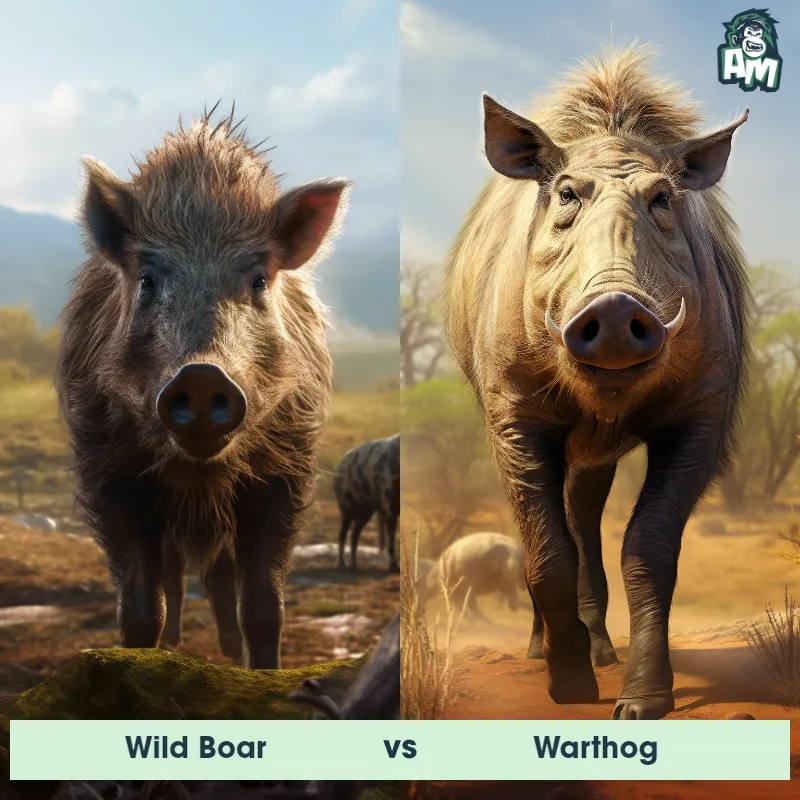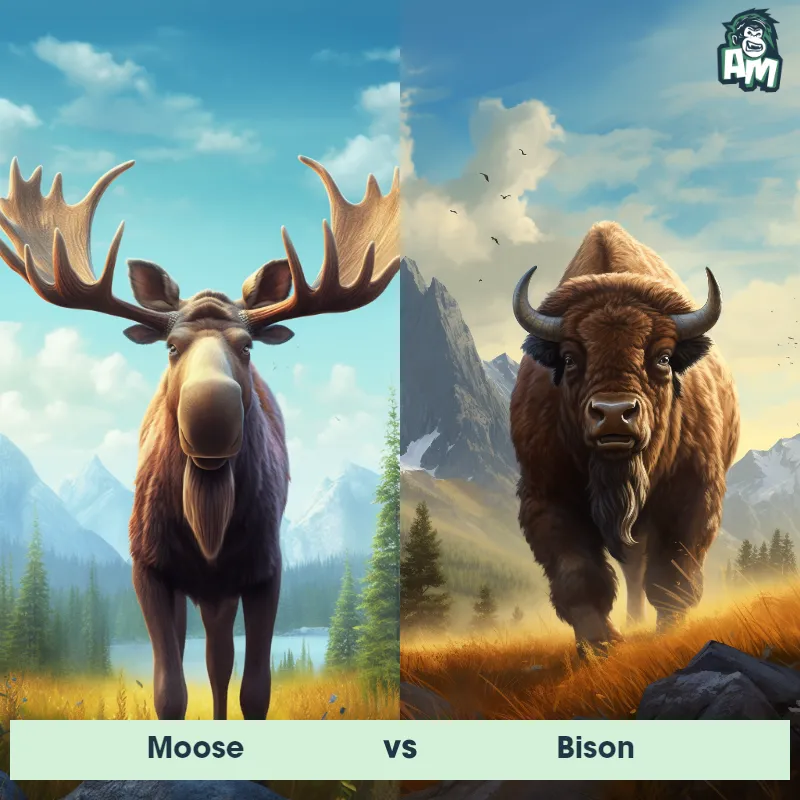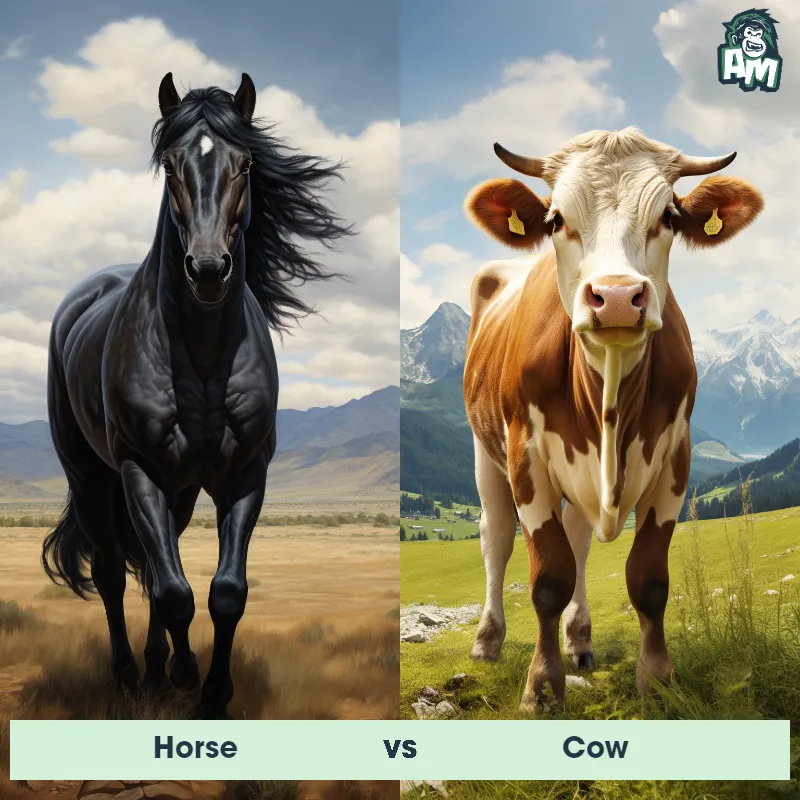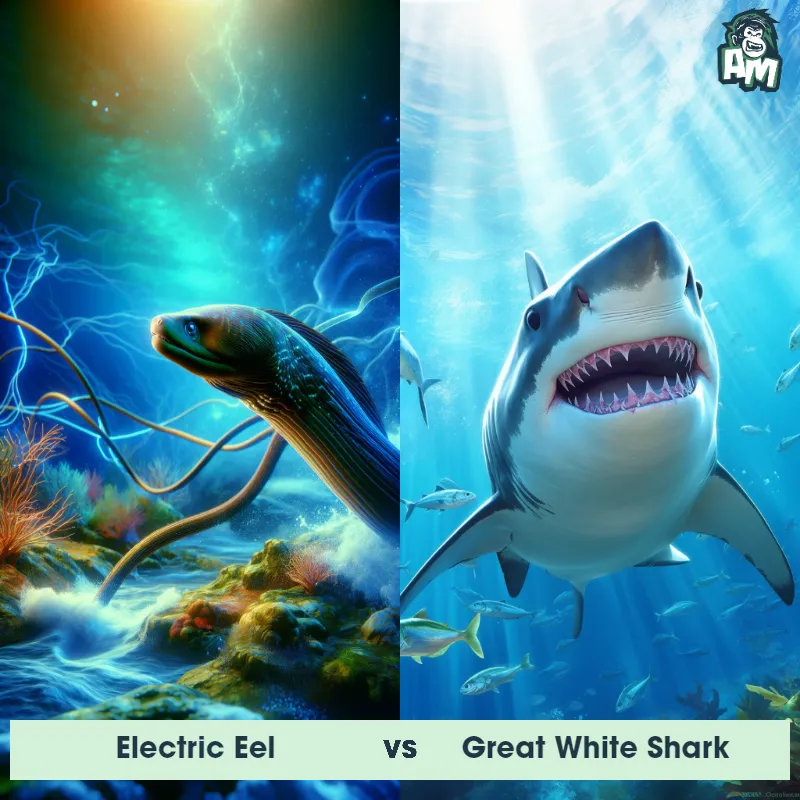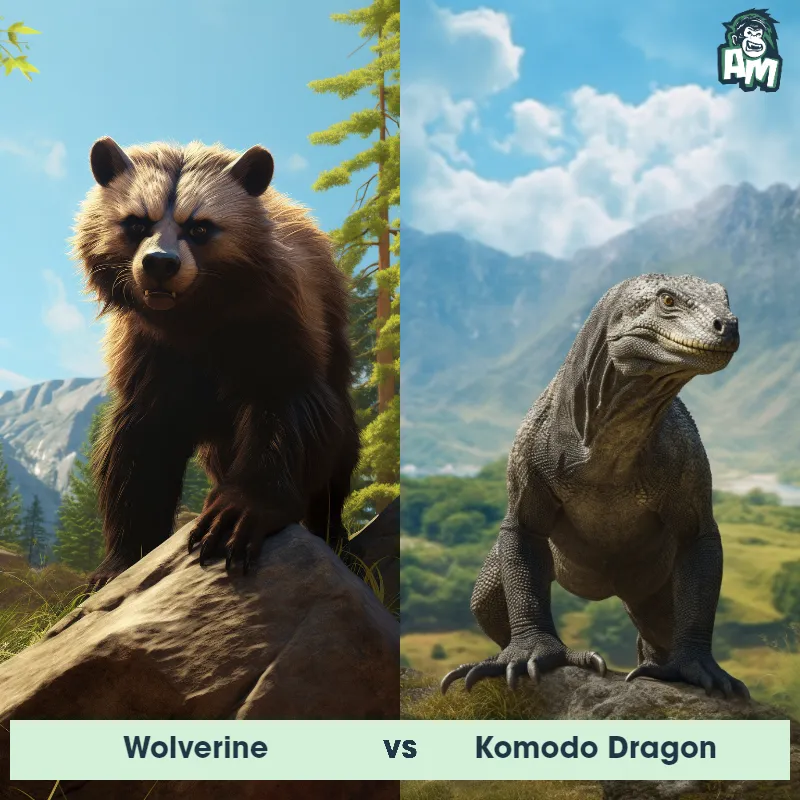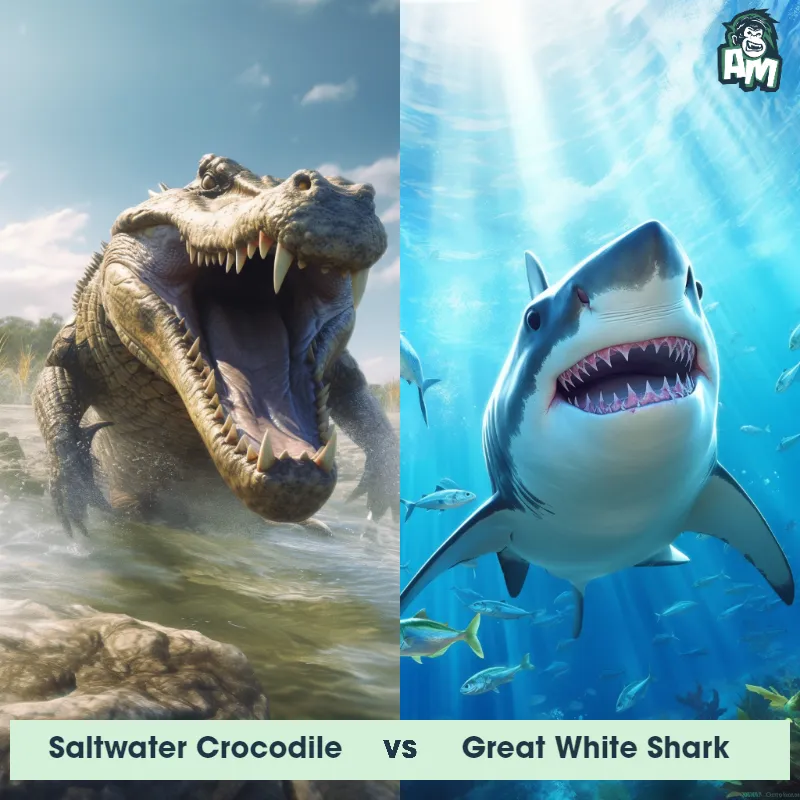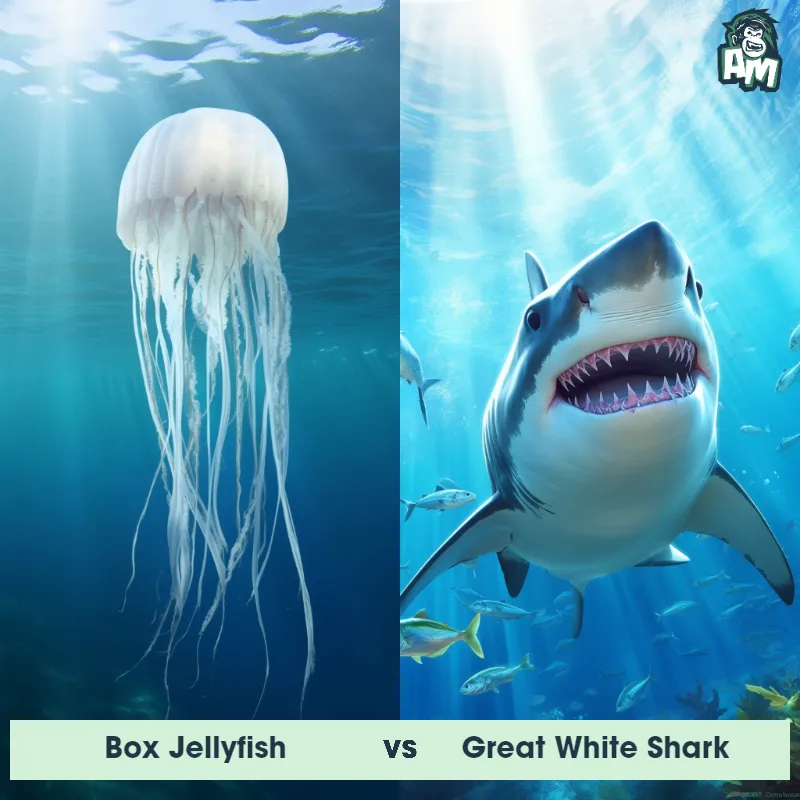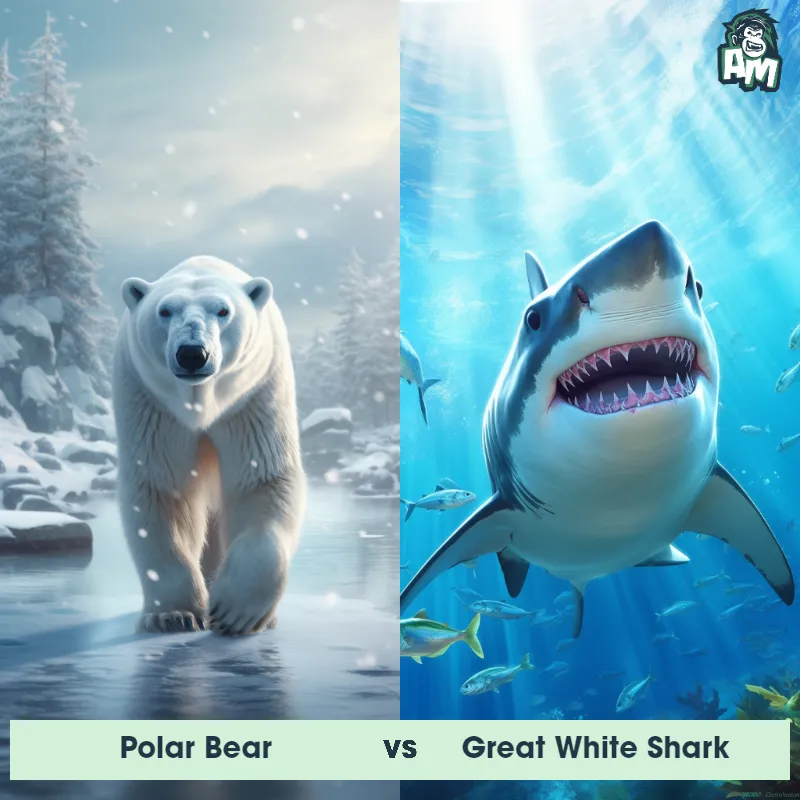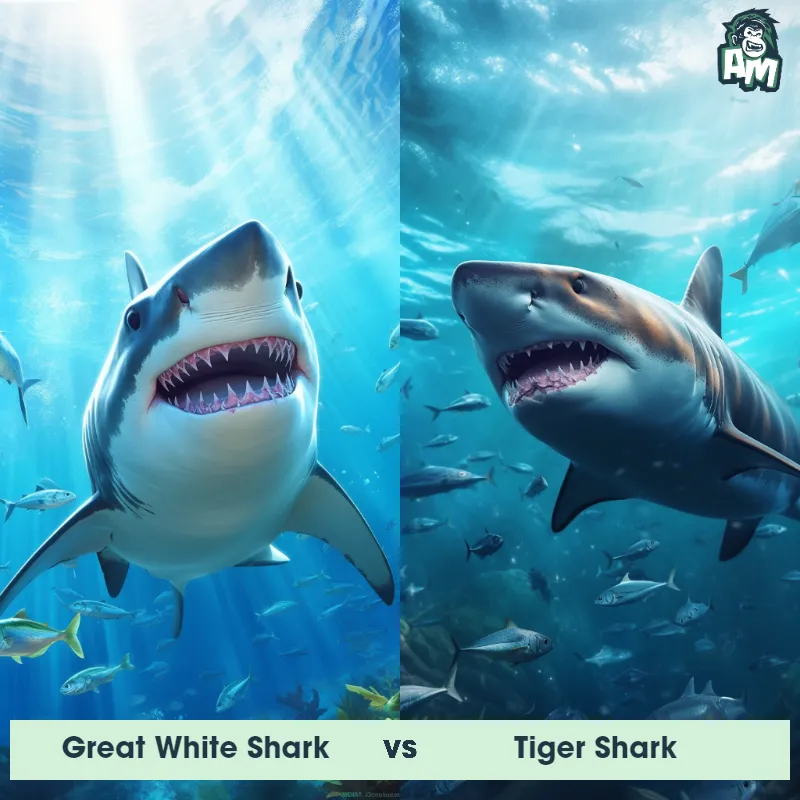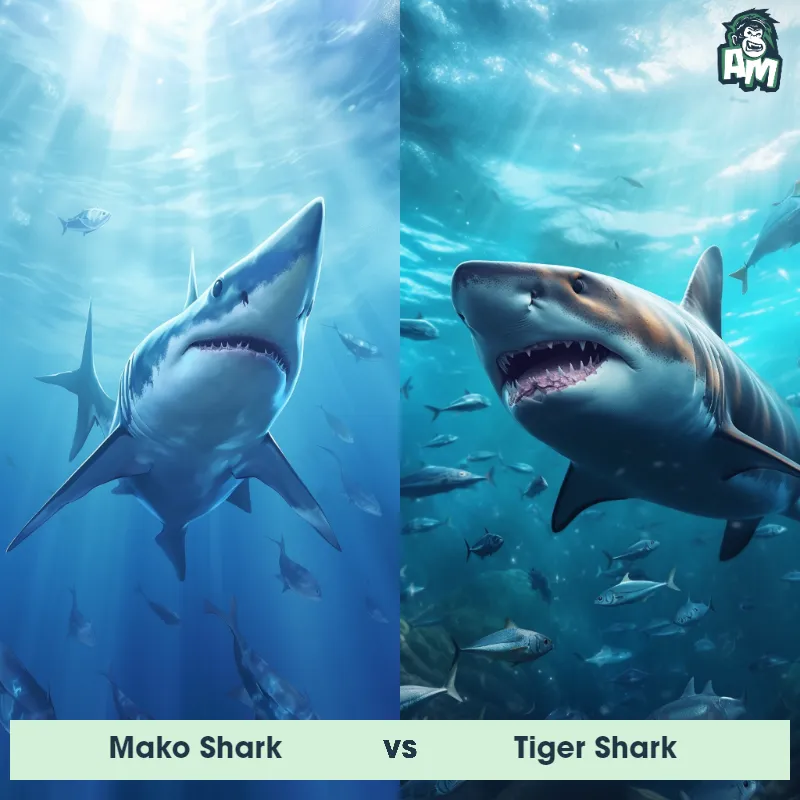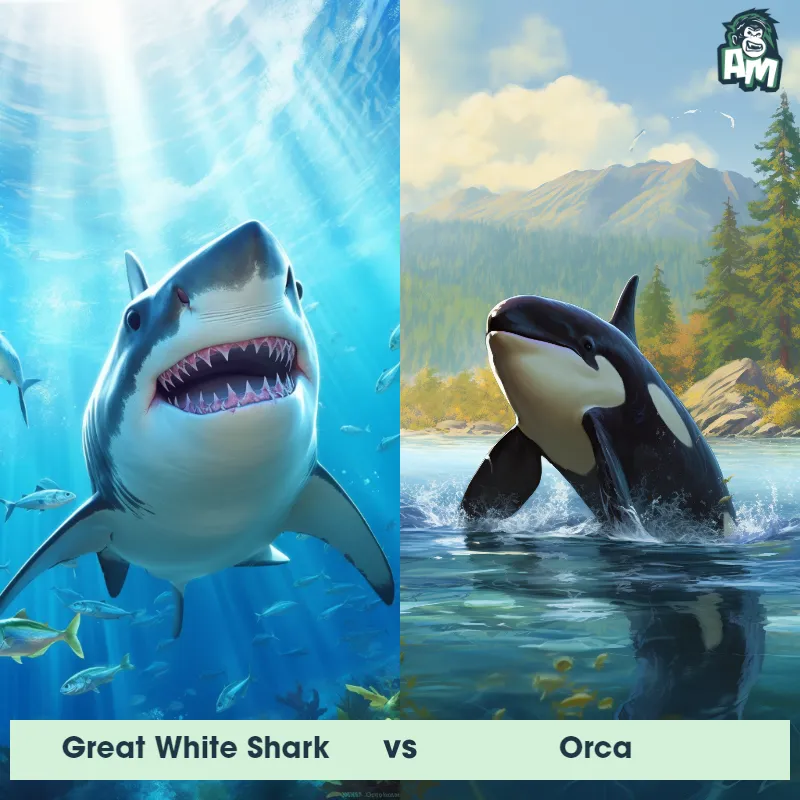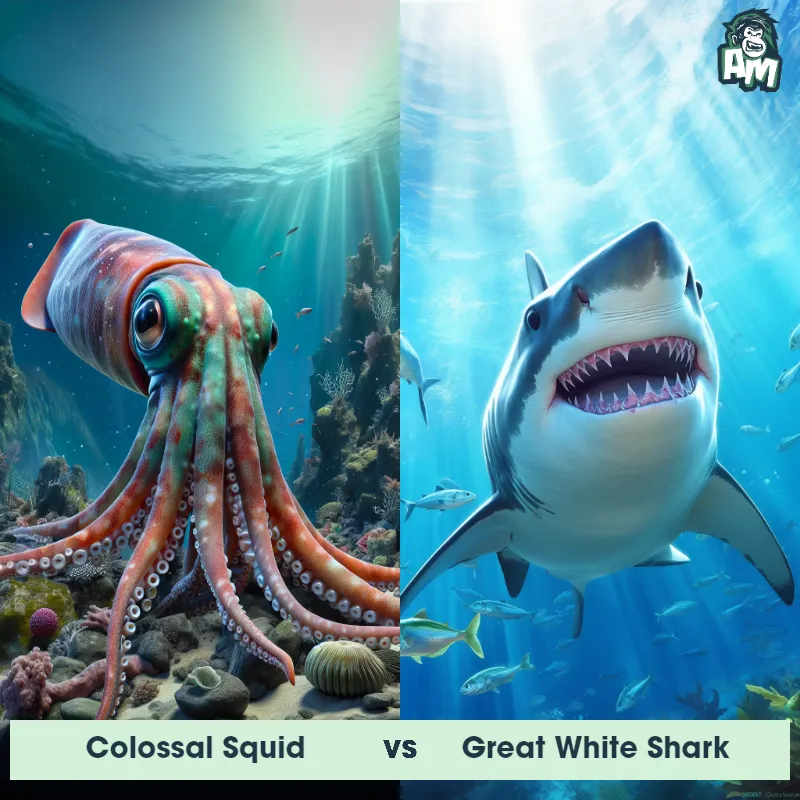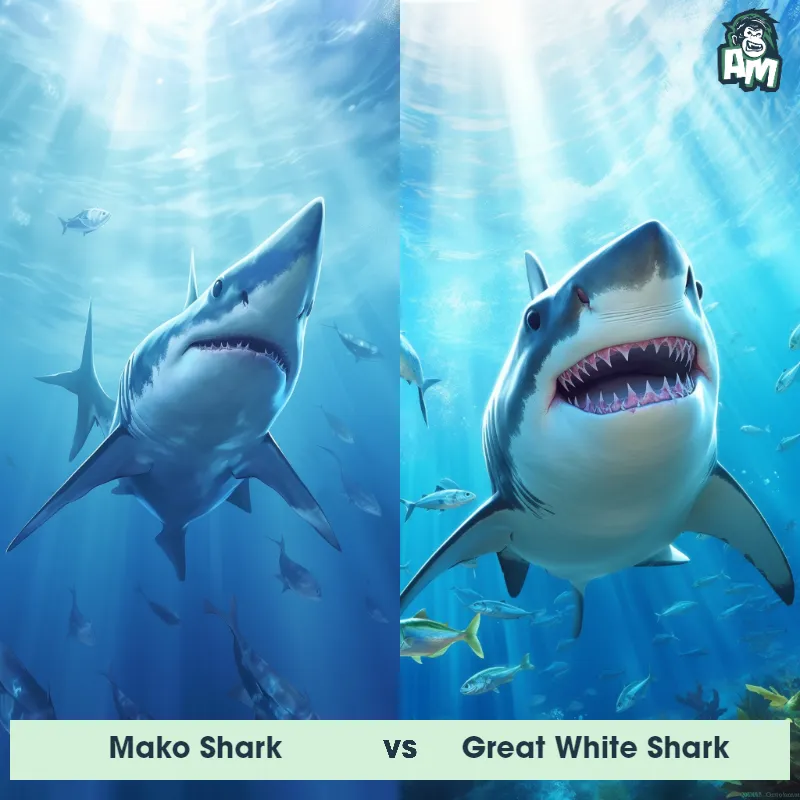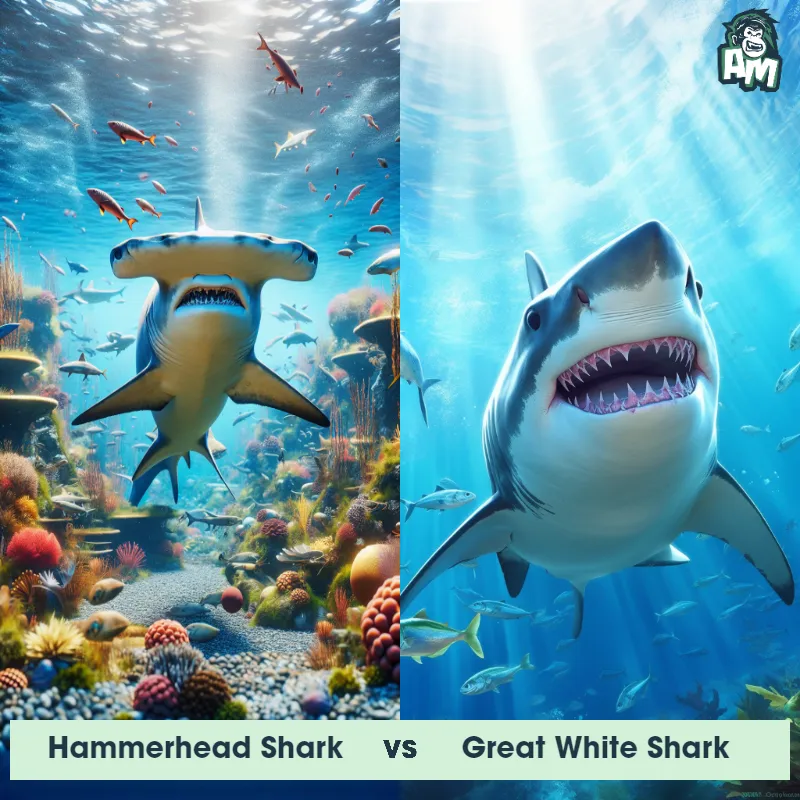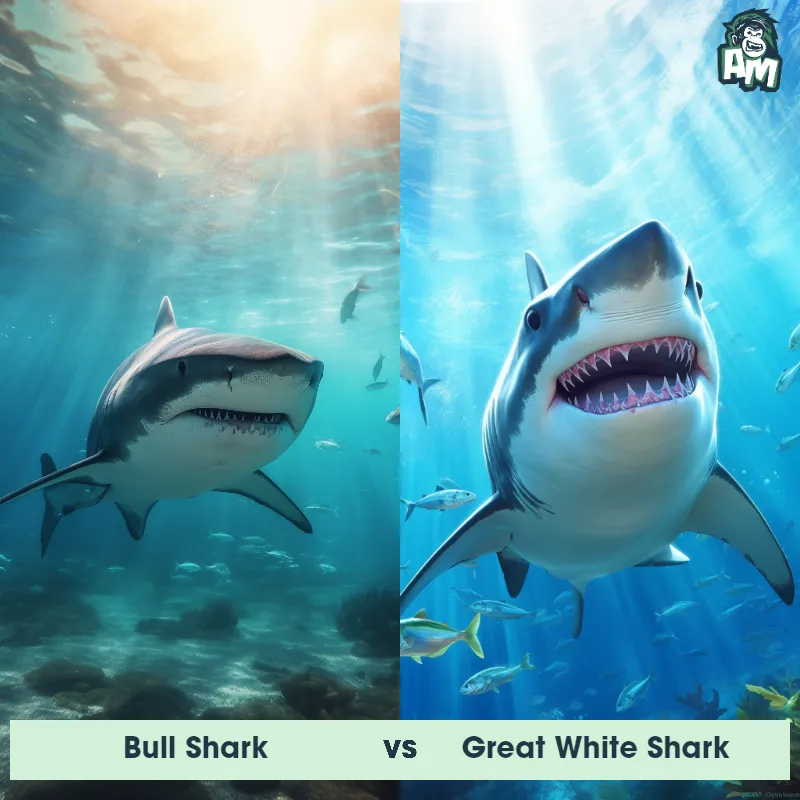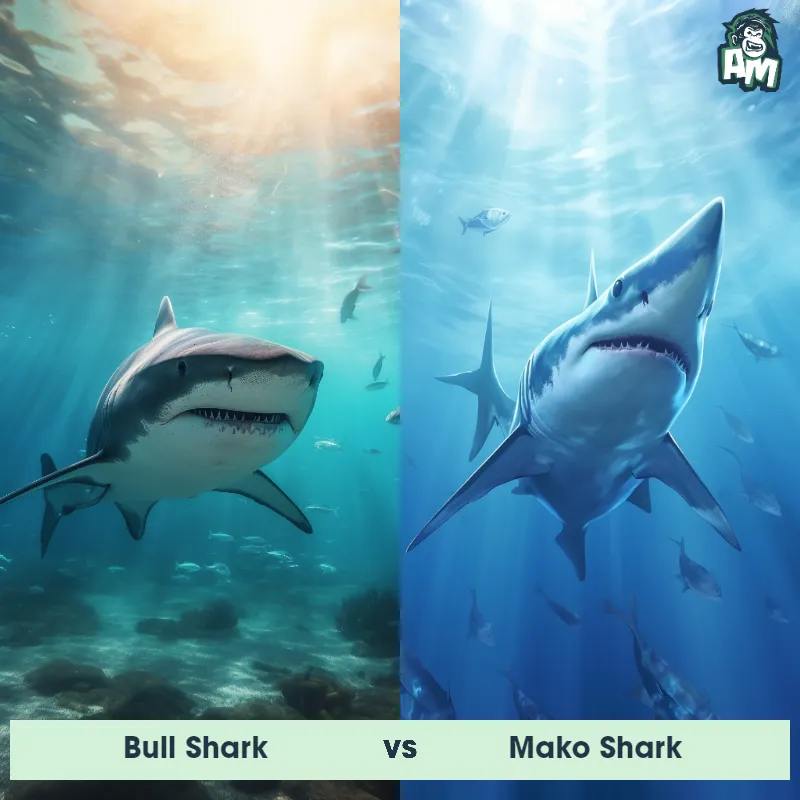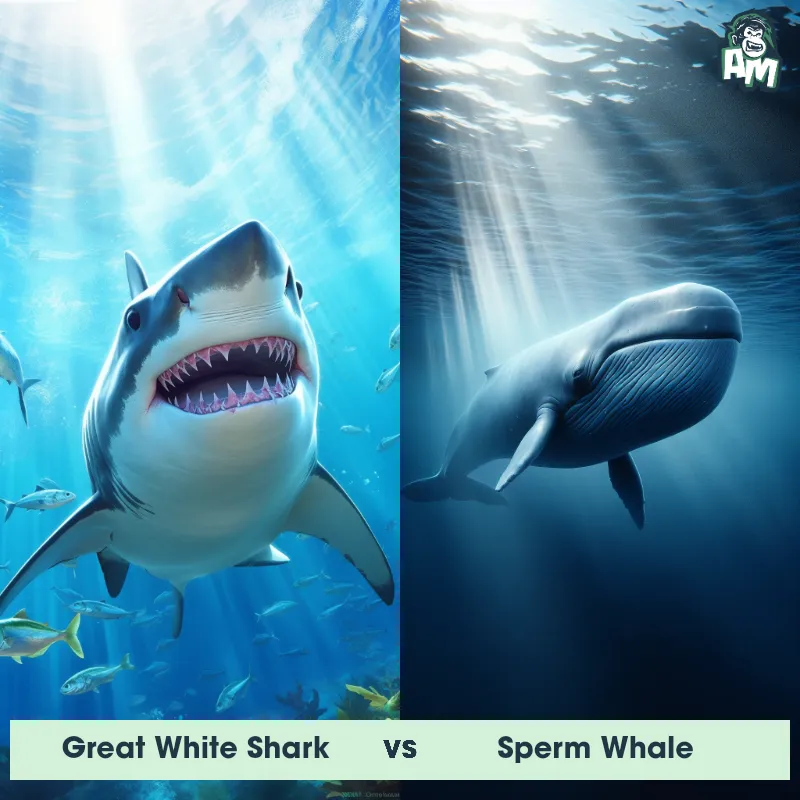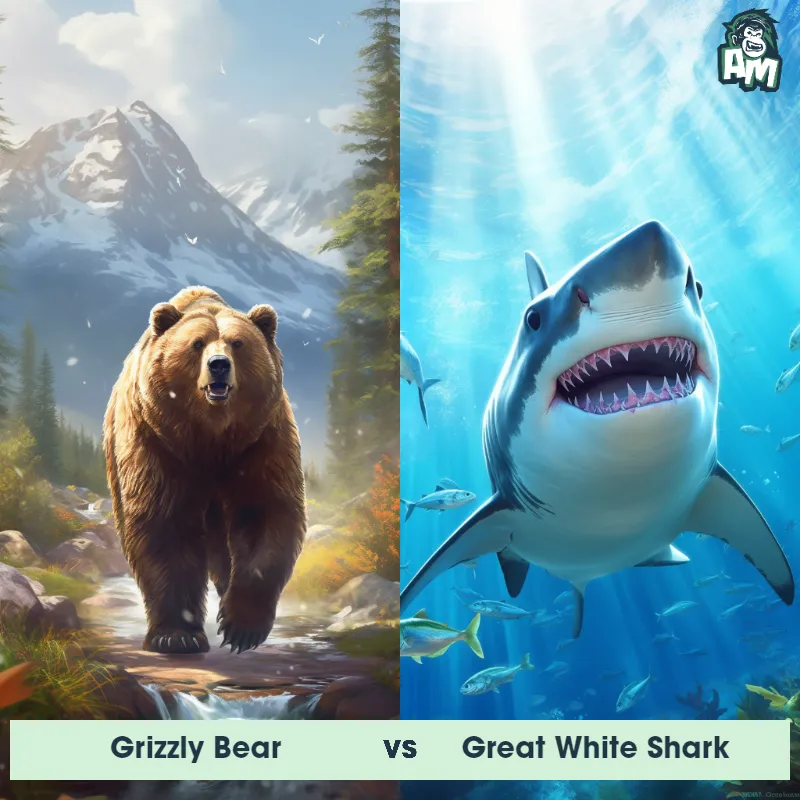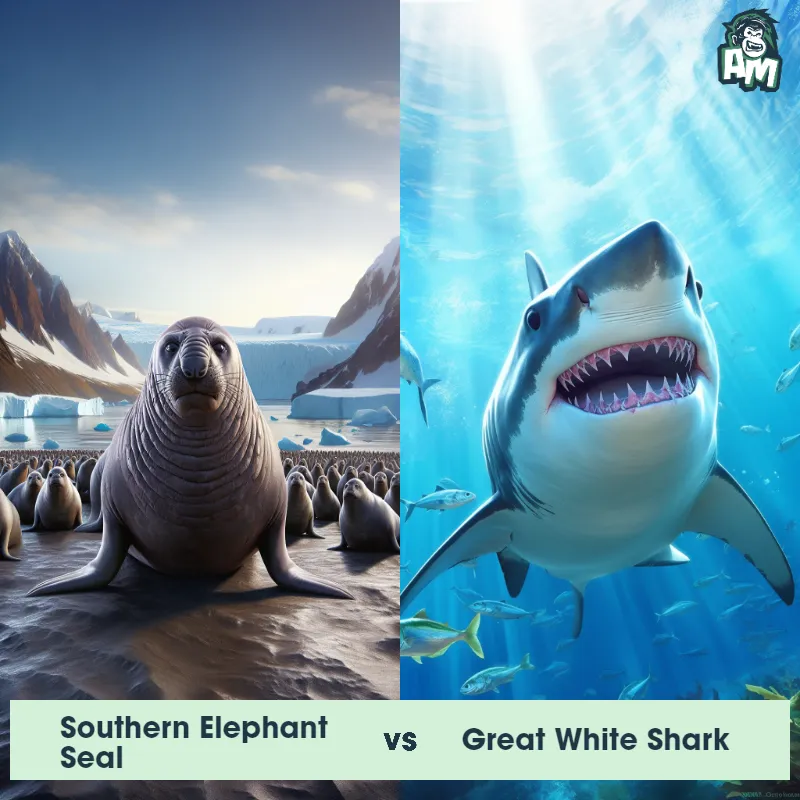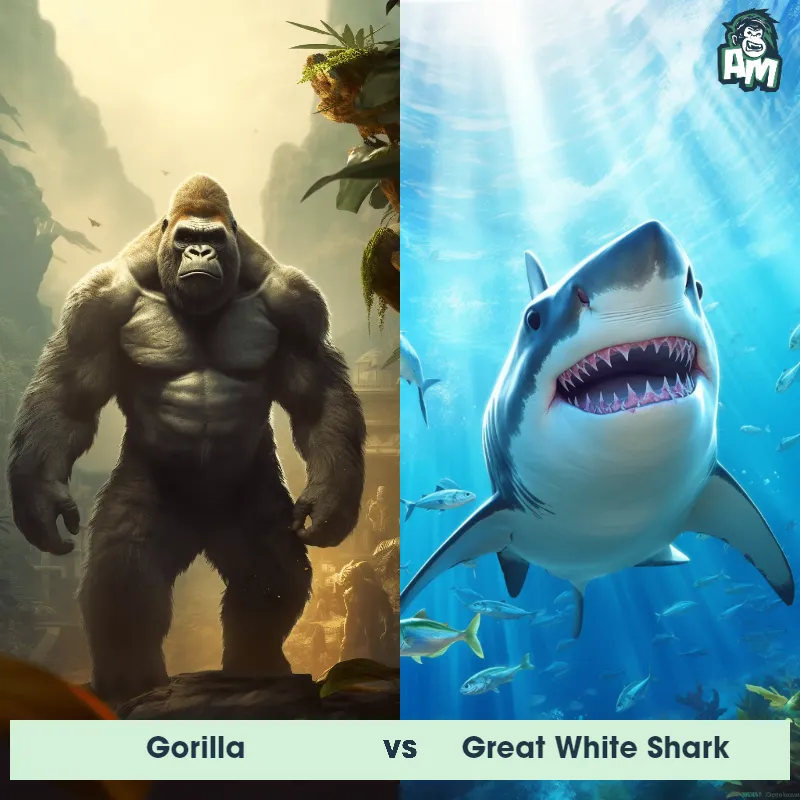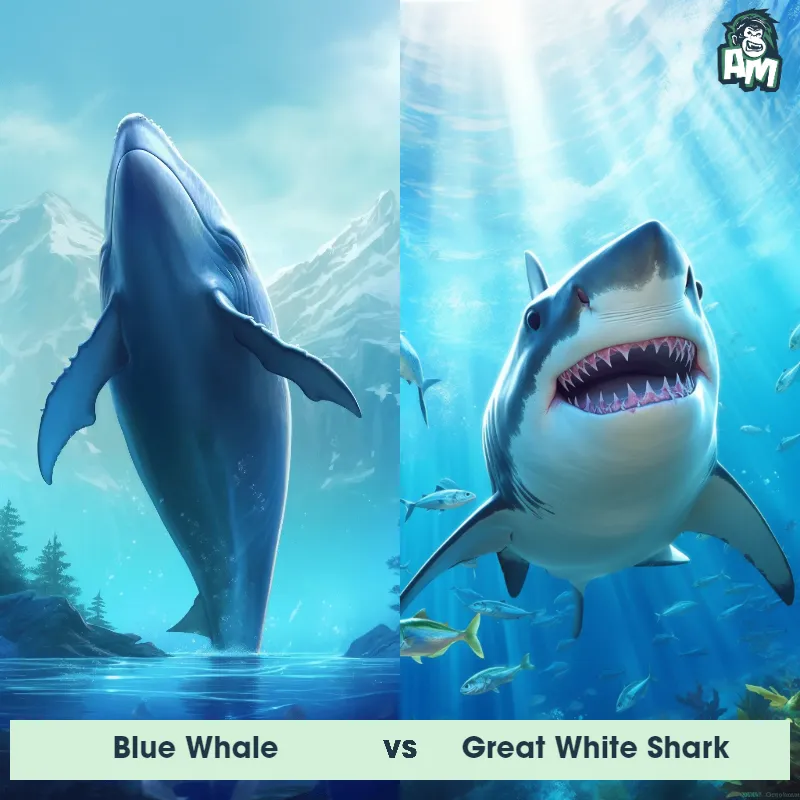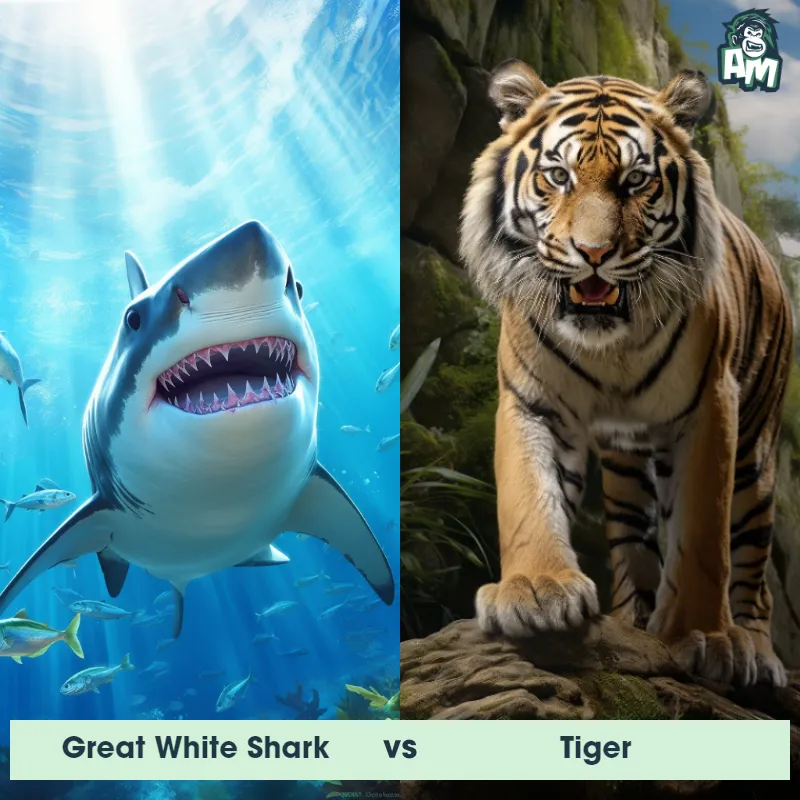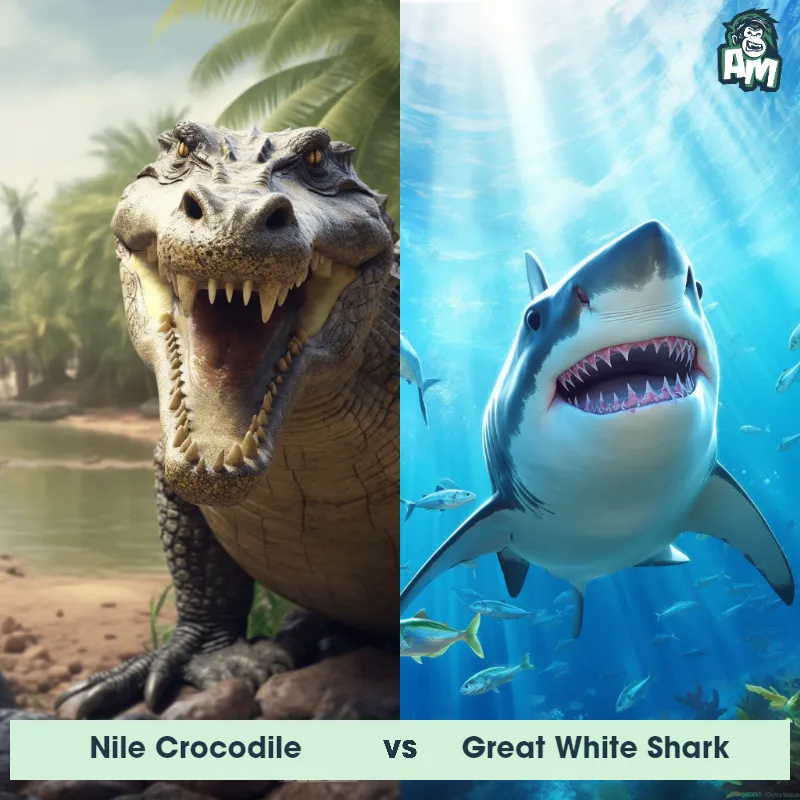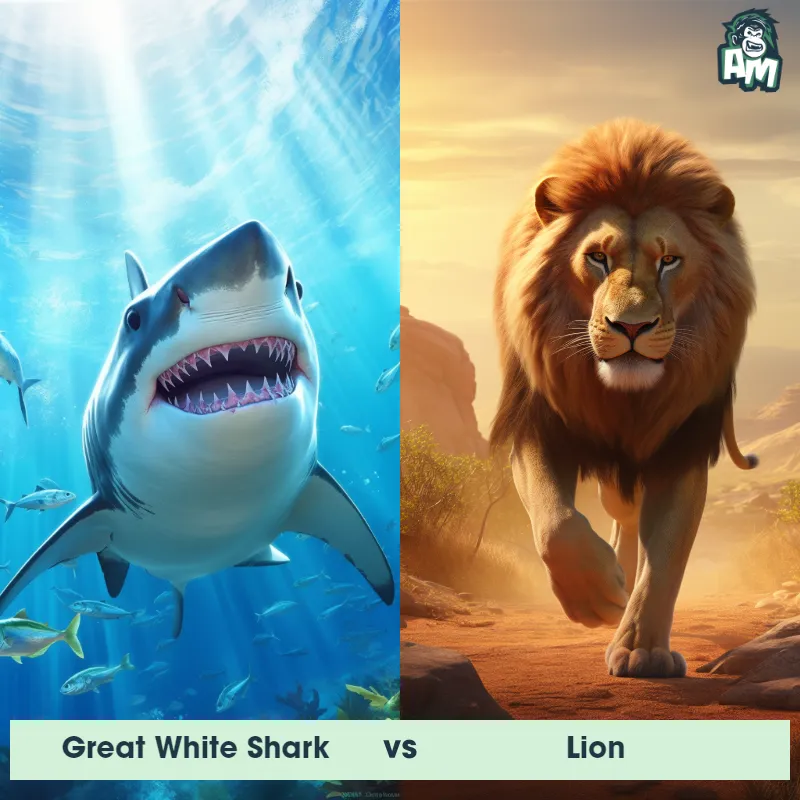Great White Shark vs Whale SharkSee Who Wins

Ladies and gentlemen, welcome to the breathtaking underwater world where two of the ocean's fiercest creatures are about to face off in an epic battle! We have a Great White Shark squaring off against a Whale Shark, both renowned for their size and strength. It's going to be an aquatic showdown like no other.
Contender 1: Great White Shark
The Great White Shark, also known as the white pointer or white death, is a large predatory fish that can grow up to 20 feet in length and weigh over 5,000 pounds. They have a distinctive torpedo-shaped body, grayish-brown skin, and rows of sharp teeth that can number up to 300. Great White Sharks are found in coastal waters all over the world and are known for their powerful jaws and ability to breach the surface of the water.
Fun Fact: Great White Sharks have a unique sense of smell that allows them to detect a single drop of blood in 25 gallons of water, which is equivalent to the size of an Olympic swimming pool.
Contender 2: Whale Shark
The Whale Shark, known scientifically as Rhincodon typus, is the largest fish species in existence, reaching lengths of up to 40 feet and weighing around 20 tons. This gentle giant has a distinctive flattened head, a wide mouth lined with rows of small teeth, and a broad, rounded snout. Its body is covered in a unique pattern of light spots and stripes against a dark blue-gray color, which helps in camouflage. Despite its massive size, the Whale Shark is considered a filter feeder, sieving huge volumes of water through its gills to capture tiny plankton, small fish, and even small squid.
Fun Fact: The Whale Shark holds the title for being the largest fish in the ocean, but it is actually not a whale at all! It is a species of shark, classified under the order Orectolobiformes, which includes other well-known sharks like the Nurse Shark and the Wobbegong Shark.
Matchup Stats
| Great White Shark | Whale Shark | |
|---|---|---|
| Size | Up to 20 feet (6.1 meters) | Up to 40 feet (12 meters) |
| Weight | Over 5,000 pounds (2,268 kilograms) | Around 20 tons (18,000 kilograms) |
| Speed | Speed: 25 mph (40 km/hr) | 3mph (5km/h) |
| Key Strength | Powerful jaws and sharp teeth | None |
| Biggest Weakness | Vulnerable gills and eyes | None |
Current Votes
Great White Shark vs Whale Shark
See Who Wins
View More Matches
Looking For More?
Similar Matches
Scientific Stats
| Great White Shark | Whale Shark | |
|---|---|---|
| Scientific Name | Carcharodon carcharias | Rhincodon typus |
| Family | Lamnidae | Rhincodontidae |
| Habitat | Coastal waters | Open ocean |
| Geography | Worldwide | Tropical and warm waters worldwide |
| Diet | Carnivorous, primarily seals and sea lions | Plankton, small fish, and small squid |
| Lifespan | 70 years - 100 years | 70 years - 100 years |
Key Differences between Great White Shark and Whale Shark
- Body shape: The Great White Shark has a streamlined, torpedo-like body with a pointed snout and large pectoral fins, while the Whale Shark possesses a more massive, flattened body with a broad, flat head, and two large dorsal fins.
- Size: The Great White Shark is significantly smaller than the Whale Shark, with an average length of 15-20 feet compared to the immense size of the Whale Shark, which can grow up to an astounding 40 feet or more.
- Coloration: While the Great White Shark is distinguished by its grayish-brownish dorsal side and white underbelly, the Whale Shark features a distinct pattern of light grayish-blue color on its back and sides, covered with striking white spots and lines.
- Mouth size and shape: One of the most apparent differences between the two sharks is their mouth structure. The Great White Shark has a large, triangular mouth lined with rows of sharp, serrated teeth, comparatively smaller in the Whale Shark, whose mouth is wide and throat-like, enabling it to filter-feed on tiny organisms.
- Dorsal fin appearance: The Great White Shark has a distinct, triangular-shaped dorsal fin, which is more pronounced and rigid. In contrast, the Whale Shark's dorsal fins are much taller and more rounded, resembling a large sail.
- Behavioral characteristics: While the Great White Shark is a powerful and agile predator known for its stealthy ambush tactics, the Whale Shark is a filter feeder, primarily consuming plankton and small fish. This behavioral difference is reflected in their swimming patterns and hunting techniques.



